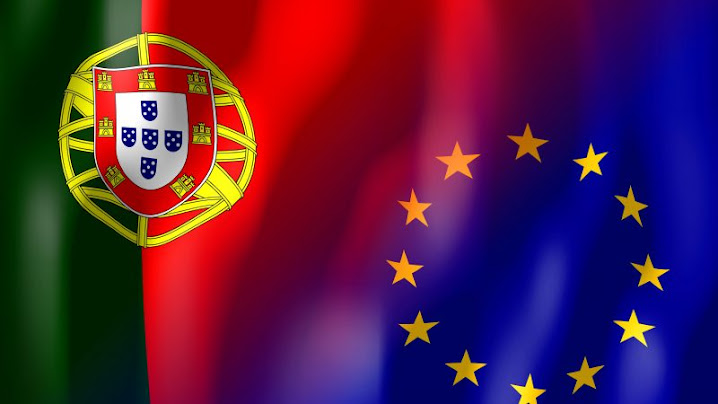The Dutch
Minister of Finance turned out to be anasshole... but as they say in the
announcement, "it's already coming from afar"... nothing like
remembering "History"
THE IBERO-DUTCH
WAR
I am not going to
discuss the issue of Eurobonds,which is already old and where the position of
the various European countries has not changed. What I can think of to comment
is the acinte of the Dutch minister towards Spain.
Why spain in
particular?
There are things
of history that remain in the collective memory of peoples, not so much as a
memory of the facts, but as emotional memory, in hatreds and esteem. And the
fact is that there is a secular resentment in the Netherlands against Spain and
also against Portugal, as can be seen in blogs and cyber-groupswhen talking about the IberianDiscoveries.
Where's that coming from?
It's just that
Spain and the Netherlands fought a war for 80 years, between 1568 and 1648!
Which ended with the Dutch victory in Europe, but the defeat in the Spanish
Overseas. It is a long story, which I will not develop, but just to mention
that, without justification, the Netherlands has extended this war to Portugal,
in what was undoubtedly the first modern imperialist war in European history.
Around here it is
little known, as everything concerning the history of our overseas empire, but
this war was the longest war that Portugal fought in its history, after the war
against the Moors.
Basically, the
Netherlands sought to rob Portugal of its overseas empire. He began by
systematically hacking our galleons and caravels, and in the East took
everything he could - Ceylon, the Moluccas(present-day Indonesia, which only left us Timor),) ,
trade with Japan, and just did not take away from us Macau because the Chinese
emperor protected us, unlike the Japanese emperor.
In Africa he took
the Cape away from us, he couldn't get Mozambique out, but he also tried to
take Brazil and the colonies out of Atlantic Africa. That's where the war was
most lit and long.
The war in Brazil
was for the appropriation of sugar plantations, and lasted 65 years. It was the
Brazilians themselves who defeated and expelled the Dutch, although they then
went to plant sugar in Guyana. As Brazilian sugar (which all the others later
copied in Haiti, Cuba, etcetc.) was an unviable agro-industry without African slaves, the Netherlands took us
To Sao Tome and Principe, the Mine on the coast of Guinea, and in 1640, when we
were no longer subjects of the Spaniards and therefore without excuse, Luanda. But only Luanda,
never managing to dislodge the Portuguese from their positions in the interior,
thanks to our African allies and also to Brazilian aid.
Also in Brazil,
as in Angola, the Dutch never managed to move from some coastal cities to the
interior. In the interior, the Portuguese, the Portuguese-Brazilians, and in
Angola the Portuguese-Africans have always dominated. In Brazil, The
Portuguese-Brazilians kept the coastal cities under Dutch rule surrounded,
breaking them when they tried to penetrate the interior. And it was the
Brazilians who financed, built and equipped the armada that went to Luanda and
São Tomé to recover those sources of slaves for sugar plantations. The official
Brazilian historiography considers that it was in this war that his nationality
was forged, with the combined struggle of white Portuguese-Brazilian
detachments, Indian troops, and black troops formed by former slaves. All
together against the Dutch.
The religious
issue was important in this outcome of the Luso-Dutch war. The Calvinist
aversion of the Dutch to Catholic religious icons, saints and anders with Our
Lady, sacred relics and the Pope did not reaped support among Africans and
Christianindians by the esteemed Jesuits. On the contrary, it scandalized them.
The Netherlands
lost this war in the Atlantic, therefore, but resented it.
Note: the
Netherlands was the northern part of a wider nation, the
"Netherlands", whose southern part ended up on the Spanish side. Not
only with the Southern Catholic majority that did not re-engage in Dutch
Calvinism, but also from the Protestants themselves in other churches, given
Calvinist intolerance. This southern part eventually achieved its independence
in 1830 and has since been Belgium. With whom Portugal has always done well.
History has a lot
of strength...
THERE'S NO REASON
FOR ANY ASTONISHMENT
The low minister
of the low country is a "good dutch elite". Now...
- The "good
dutchman of elite" is the Dutchman who liked to be occupied by the Nazis
and collaborated with Hitler cheerfully.
- The "good
dutchman of elite" is the Dutchman who, with the greatest ease, denounced
Jews to the police, so that they would be referred for extermination.
- The "good
dutch elite" is the Dutchman who brought to South Africa the concept of
"apartheid", an monstrosity that goes beyond racism.
- The "good
elite Dutchman" is one who, in our day, lives in prosperity and without
any scruples, at the expense of tax theft from other countries... like
Portugal.
In short, the
"good elite Dutchman" is a Nazi son of a bitch, a defective human
being and a con man... and, as it turned out, the Dutch finance minister is
undoubtedly a "good elite Dutchman".






Sem comentários:
Enviar um comentário